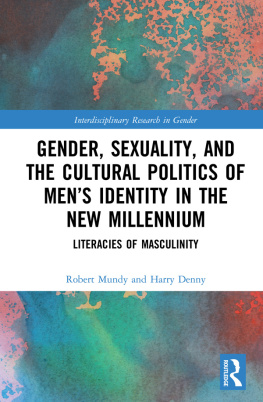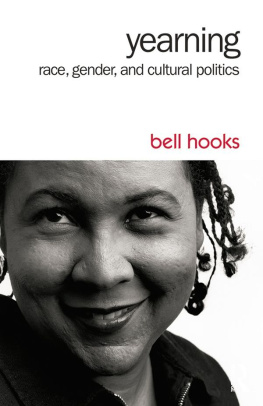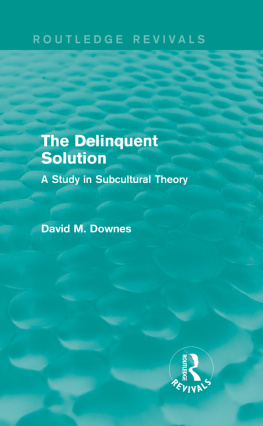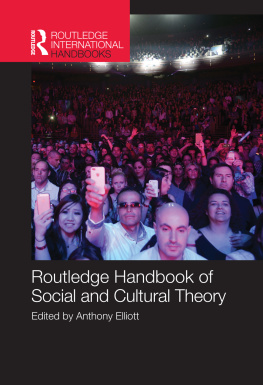THE MADONNA CONNECTION
Cultural Studies
Series Editors
Janice Radway , Duke University
Richard Johnson , University of Birmingham
The Madonna Connection: Representational Politics, Subcultural Identities, and Cultural Theory edited by Cathy Schwichtenberg
Dreaming Identities: Class, Gender, and Generation in 1980s Hollywood Movies Elizabeth G. Traube
Enlightened Racism: The Cosby Show, Audiences, and the Myth of the American Dream Sut Jhally and Justin Lewis
Forthcoming
Reconceptualizing Audiences edited by Jon Cruz and Justin Lewis
Frameworks of Culture and Power: Complexity and Politics in Cultural Studies Richard Johnson
An Introduction to Media Studies edited by Stuart Ewen, Elizabeth Ewen, Serafina Bathrick, and Andrew Mattson
Art and the Committed Eye: Culture, Society, and the Functions of Imagery Richard Leppert

photo by Alberto Tolot, courtesy of Warner Brothers
The Madonna Connection
REPRESENTATIONAL POLITICS, SUBCULTURAL IDENTITIES, AND CULTURAL THEORY
edited by
CATHY SCHWICHTENBERG
First published 1993 by Westview Press
Published 2019 by Routledge
52 Vanderbilt Avenue, New York, NY 10017
2 Park Square, Milton Park, Abingdon, Oxon OX14 4RN
Routledge is an imprint of the Taylor & Francis Group, an informa business
Copyright 1993 by Taylor & Francis
All rights reserved. No part of this book may be reprinted or reproduced or utilised in any form or by any electronic, mechanical, or other means, now known or hereafter invented, including photocopying and recording, or in any information storage or retrieval system, without permission in writing from the publishers.
Notice:
Product or corporate names may be trademarks or registered trademarks, and are used only for identification and explanation without intent to infringe.
Library of Congress Cataloging-in-Publication Data
The Madonna connection: representational politics, subcultural
identities, and cultural theory / edited by Cathy Schwichtenberg.
p. cm. (Cultural studies)
Includes bibliographical references (p. ) and index.
ISBN 0-8133-1396-1ISBN 0-8133-1397-X (pbk.)
1. United StatesPopular culture. 2. Madonna, 1959
Influence. I. Schwichtenberg, Cathy. II. Series.
E169.12.M275 1993
306'.0973dc20 92-24760
CIP
ISBN 13: 978-0-367-29365-9 (hbk)
For Harold
The Madonna Connection has been, above all, a collaborative effort. My greatest acknowledgment goes to the volume's contributors, who "kept the conversation going" with me and among themselves. The book's scope and vitality attest to their enthusiasm, hard work, and cooperation (not to mention a sustained interest in Madonna). In addition, I am grateful to those interdisciplinary allies who helped me locate such a fine array of scholars who regularly cross disciplinary boundaries. I also thank my former colleagues in the Department of Communication at the University of Massachusetts at Amherst, whose intellectual challenges provided some of the impetus for this book's premise: that Madonna is, indeed, a multifaceted phenomenon. Thanks are also due Suzanne LeGrande, my research assistant at the University of Massachusetts during the early stages of this project.
At present, I am grateful for the friendship and support of my new colleagues in the Department of Speech Communication at the University of Georgia, particularly Celeste Condit, Jerry Hale, Cindy Jenefsky, and Ed Panetta. Others further away are responsible for bridging distances and providing intellectual support, among them James Lull, Janice Rushing, Tom Frentz, Michael McGee, Maurice Charland, and Belle Edson.
No project comes to fruition without the foresight and skill of a good editor, and I had the very best: Gordon Lester-Massman at Westview Press and his editorial assistant, Jim Fieser. I am profoundly grateful to have worked with them both. I also thank series editors Janice Radway and Richard Johnson for their helpful comments and suggestions during the book's formative stages. Thanks also to Liz Rosenberg for her interest and cooperation.
I thank Tom Nakayama for intellectual and emotional sustenance during my hours of need (and for supplying all those Madonna tapes and postmodernism articles). Most of all, I owe a debt of gratitude to Harold Schlechtweg, whose encouragement, love, humor, and critical insights made The Madonna Connection a reality. Last but not least, I thank Madonna for stirring up trouble and forcing us to think seriously about the politics of popular culture.
Cathy Schwichtenberg
Introduction:
Connections/Intersections
CATHY SCHWICHTENBERG
DAVID TETZLAFF notes in this volume that "when tabloid journalists start presenting the activities of academics to their sensation-seeking audiences, it is obvious that some very large cultural power is at hand." This cultural power refers, of course, to Madonna, who needs little introduction given her cultural ubiquity. For almost a decade, Madonna has insinuated herself into public consciousness through media spectacles that have raised public admiration and condemnation to new levels of intensity (see Schulze, Barton White, and Brown, this volume).
Academics are typically the last to know about popular phenomena (or they willfully ignore them), but their reaction to Madonna has proved to be an exception to the rule: Academic commentary on the early phase of her career was soon forthcoming (Brown and Fiske 1987; Fiske 1987; Kaplan 1987; Lewis 1987). However, the full extent of her significance as a cultural power to be reckoned with was emphasized most forcefully for me in 1990 when I began presenting papers at conferences on the later, more political Madonna that were reported on with chagrin by the popular pressan unaccustomed (though at first welcomed) attention that culminated in a particularly nasty expos about "Madonna scholars" on the television program "Inside Edition."
Yet, the story of academic encroachment into the media's colonized domain did not stop there. If I had been chastised by practitioners of a slanted journalism, jealously guarding their monopoly on public discourse, this did not prevent others from responding. From 1990 to 1991, I was inundated with requests for material on Madonna from young women in Virginia, Oregon, New York, and elsewhere who were writing papers about her. My appearance on "Inside Edition" prompted a generous letter from a college professor I had not heard from in thirteen years (as well as an inquiry from a woman in Minnesota who thought I might be a distant relative). Writing about Madonna and her cultural significance had, in effect, produced concrete examples of that very phenomenon. Unlike my previous forays into popular culture, writing about Madonna had produced connections with others outside academe that dissolved the boundaries between public and private, academic and popular, theory and practice.
Though such boundaries may function in name only, the fact that Madonna broaches divisions underscores the extent of her cultural powercertainly large enough to link total strangers in dialogue and highlight the ephemerality of boundaries. This is what The Madonna Connection is, in part, all about: the connections between everyday life and cultural analysis as significant to the ways in which we understand, interpret, communicate, and use the resources of popular culture, as well as the ways in which popular culture can enable or constrain us.









